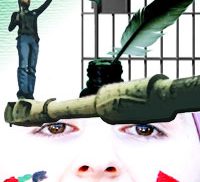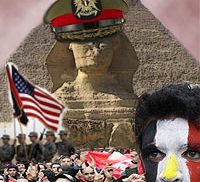This dossier stems from the debate sparked by Elizabeth Suzanne Kassab’s article—which opens this collection—on the transformation of the Arab intellectual scene after 2011. Her notion of a “new contemporary” in Arab thought prompted a series of contributions that do not aim to offer solutions, but rather to raise new questions, probe unresolved issues, and put forward critical perspectives. Bringing together Kassab’s essay and two related pieces, the dossier explores how Arab thought is redefining itself in light of the uprisings, the failures of political transitions, and the moral and intellectual rupture marked by Gaza.
Dossiers
- Each cultural and denominational tradition, including Islam and other religions, is susceptible to lead to an internal elaboration of its own democratic and pluralist approach to modernity. Four leading scholars explain how and why this happens.
- Can Islam accomodate democracy? Reset-Dialogues addressed this question years ago, during the 2008 and 2009 editions of Istanbul Seminars. But today the Arab spring and the success of Islamic parties in several countries show that the relationship between Islam and democracy still is a matter of great interest. Therefore we chose three important essays from our seminars to discuss this subject in depth.
- Revolutions have brought a new season to the Arab world, one filled with promises, doubts and great expectations for democracy. Where is the region heading? Will new forms of secularism emerge? Or will religion come to dominate the new political landscape of the region? Can minorities coexist within these new realities? Resetdoc spoke to Radwan Masmoudi, director of the Center for the Study of Islam and Democracy in Washington, D.C. and with Rajeev Bhargava, director of Centre for the Study of Developing Societies in Delhi.
- Mohamed Morsi, the Muslim Brotherhood’s candidate, is the first democratically elected president of the Arab Republic of Egypt. This result is an important step forward in the current political process, but there are still many problems to be addressed. What powers does the new president really have? And the military? When will a new constitution be approved? And which new institutional equilibriums, which rights and duties will it guarantee? Resetdoc asked former Italian Ambassador to Egypt Francesco Aloisi de Larderel to comment this crucial moment for Egypt.
- Increasing extremism is bubbling to the surface in nationalist and anti-immigrant rhetoric. A Resetdoc roundtable in New York examines the cultural and political roots of these fanaticisms as they affect public life from Europe to the USA.
- What language, which words and concepts are Arab spring-societies speaking? How do they narrate and understand their history in the making? Moroccan philosopher Abdou Filali-Ansary from the Institute for the Study of Muslim Civilizations in London has analyzed this issue in his recent S. M. Lipset Lecture on Democracy in the World, now re-published by Resetdoc. In another article, Brahim El Guabli unveils the features and importance of prison literature throughout the contemporary Arab world.
- The Moroccan monarchy reacted to the first uprisings by announcing a wide-ranging reform programme that seems to have been started with a constitutional referendum last summer and parliamentary elections held last autumn. While this represents a major step towards the democratization of the Moroccan political system, the problems to be addressed in this new season are many and complex. We have asked Mohamed Hashas from Copenhagen University to address the situation in this great North African country.
- The German philosopher Jürgen Habermas and Italy’s President Giorgio Napolitano, two of the greatest Europeanists of our times, are asking for “more Europe” so as to overcome the legitimacy crisis currently affecting the 20th Century’s most important political project. In controversy with Angela Merkel, in a discussion in Frankfurt Habermas claims the urgent need for a democratic vision of European integration, addressed at citizens and not only at states and at their economies. The need to overcome the dogma of national sovereignty is instead at the heart of Giorgio Napolitano’s letter to our magazine “Reset”, which is published here.
- As it was for Tunisia and Egypt, 2011 was a year of change for Morocco as well. From the people’s protests one year ago, to the constitutional referendum held July 1st, to November’s general election that brought an Islamic majority to government for the first time, it is clear that there is still a long road ahead. What are the hopes and fears surrounding the promise of democracy today in Morocco? How have these events influenced and been influenced by young people, women, and Moroccan citizens at large?
- On January 14th last year Tunisia began to celebrate the departure of dictator Ben Alì and dream of a dignified, democratic and free future. One month later, under pressure from protesters in Tahrir Square, Egyptian dictator Hosni Mubarak was obliged to resign and the army appeared to be the only institution that still enjoyed the trust of the country’s citizens. On December 15th the United States Secretary of Defence announced the end of America’s military operations in Iraq. Has a new era begun in the Arab world? It certainly has, but many concerns and new fears still trouble it.





